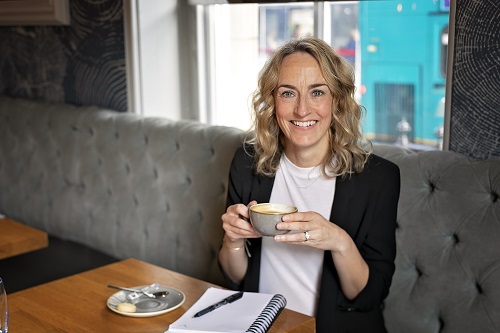
Article by Tamsyn Hawken.
“Comparison is the thief of joy” Theodore Roosevelt.
From a young age, many of us learn to measure ourselves against specific measures and more frequently than not, these measures are other people. Those who seem to have exactly what it is we desire (‘I want their house/family/job/car’) and those who might be a step or two behind us (‘Well, at least I’m not that bad/broke/unhappy’).
These are comparisons and they can make us really unhappy.
“If you compare yourself with others, you may become vain and bitter; for always there will be greater and lesser persons than yourself.” Max Urhman
Why Drop The Comparing?
-
You are giving away your power
Each of us has the power to define our own version of success. When we compare ourselves to others, using societal expectations and ideals, we give away this power to define what is meaningful to us. We become a victim of our surroundings, playing into what, where or who we think we ‘should’ be. If this isn’t in line with our truest self it will never make us completely happy.
-
Your comparisons are inaccurate
We can never fully know what is going on for someone, how or whether they have reached a certain point in their life. We might only see the highlight reel, to which we compare our un-edited behind the scenes. Often, we don’t have all the information we need to make an accurate comparison so it can be fruitless to try. When our judgements are inaccurate, so are our comparisons.
-
You can’t fully appreciate your own success
There will always be people who are one step ahead of us – it is a fact of life and we need these people to aspire to, but not to act as the rock we beat ourselves up with. When we know there will always be people who are better than us, and accept that they are not our competition we can begin to appreciate our efforts. Nobody can know or appreciate your achievements better than you because only you know what it took to get you there.
-
Comparison keeps you where you are
Comparing takes up a lot of energy due to the hypervigilance required to be on the look-out for people to compare yourself to. When this energy is wasted in this way you stay still and are unable to focus on other more positive endeavours.
5 Ways To Stop Comparing Yourself To Others
How do we begin to stop comparing? It can be hard, albeit freeing, to break away from it. Comparing ultimately comes from a sense of insecurity, so many steps to dropping the comparison is working on a foundation of self-worth and acceptance that makes comparing unnecessary.
“You’ve been criticizing yourself for years and it hasn’t worked. Try approving of yourself and see what happens”. Louise Hay
-
Cultivate awareness
I find that when I am feeling bad about myself I have usually been comparing. Checking in with yourself throughout the day and asking yourself if you’ve been comparing can help you realise the areas of your life you do it most. You may also bring your body into this enquiry too. Does your stomach drop or do you feel very small and vulnerable when you are comparing?
-
Focus on gratitude
Gratitude can offer a perspective that creates joy and contentment. You can focus specifically on gratitude for things, people or situations around you but in terms of comparisons it can be really helpful to focus on gratitude for yourself. Add a ‘me’ element to your gratitude practice if you have one already or plan to take a few moments each day to find parts of yourself you are grateful for.
-
Focus on your strengths
We all have strengths, whether we are aware of them or not. When we compare we often zoom in on our weaknesses and the strengths of others, creating a very small picture of our lives and the lives of others. What happens if you imagine there is nobody but you on the planet, nobody to compare to. What would be your strengths? Focus on building and appreciating these and the need to compare will lessen.
-
Be gentle with your ‘weaknesses’
You may have what you believe to be a weakness in one area of your life, but completely thrive in another. By treating these imperfections with love and compassion you can integrate them and start to appreciate them for what you are. When you begin to love those parts of you or your life that you consider undesirable, they can feel like less of a battle and you can work with them rather than against them.
“Her success is not your failure” Unknown
-
Improve from a place of self-love and acceptance
Ultimately, what someone else is capable of says nothing about our value as people. We are not in competition with others and their success does not make us a failure. When there is less focus on comparisons you might find that the desire to change or set goals comes from a place of self-love and feel more soulful. If these goals come from a place of being content with yourself you are more likely to succeed and have a better time along the way.
From one recovering comparer to another, I believe that our flaws, weaknesses and imperfections are part of what it means to be human. Developing a sense of self-value and acceptance for these aspects of ourselves, where they are loved rather than used as part of a comparison where you go on to beat yourself up, is something that can create a solid foundation of self-love and care that allows you to flourish and be the woman you wish to be.








